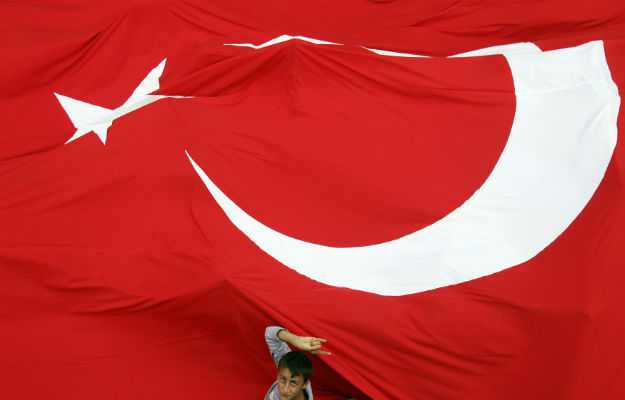Letter from Istanbul
Posted By Stephen M. Walt
The conference I’m attending has been pretty interesting, although as much for the atmospherics and side conversations as for the formal presentations. Here with a few quick thoughts before I head off for the second day.

In some ways this event — the Istanbul World Political Forum — is like a smaller-scale DAVOS, but with an emphasis on issues like global justice, emerging powers (e.g., Turkey), and (obviously) the Arab spring. The plenary session featured speeches by an Egyptian activist, the president of Libya, and a British MP, and there was a lot of rhetoric about the need for a new world order (which nobody quite defined). My first panel — on a “A New Just and Global Order” didn’t involve formal presentations (though we all had them ready), but instead was a discussion led by a moderator. The other participants were Gideon Levy of Ha’aretz and Professor Paul Taylor of the London School of Economics, and a lot of our discussion revolved around possible connections between the financial crisis, the Arab spring, and the need to adapt existing institutions (or create new ones) that better reflected the underlying balances of power in the world.
I emphasized that the U.S. was not disappearing as the world’s most powerful country, but that it was going to have make strategic choices and wasn’t going to interfere as often in the future as it had in the past. I also suggested that global institutions were likely to evolve, but that this would lag behind the shifts in the balance of power, in part because agreement on how to build new institutions or revise old ones was going to be elusive. Perhaps the most interesting thread in our conversation was the importance of each nation “coming to terms with its past,” which can only happen when there is freedom of thought and discourse and a willingness by scholars and journalists and other thought leaders to take advantage of that freedom to hold policymakers accountable.
I was also struck again by how Turkey is becoming a poster child for my colleague Joe Nye’s concept of “soft power.” Turkey’s growing stature obviously rests on certain “hard power” elements (economic growth, a large population, substantial military power, a key geographic location, etc.), but it is greatly enhanced by being perceived as a successful embodiment of Islamic democracy. And this conference — which is merely one of many that the Turkish government seems to be sponsoring these days, is a very smart illustration of “soft power.” There’s no explicit or overt agenda, and in fact a fairly wide range of views represented by the attendees — but the key point is that they are able to get lots of people from various countries to show up, converse, and generally have an interesting time. Organizing international forums isn’t that expensive, and by bringing lots of people from all over the world to Istanbul, Turkey undoubtedly generates a positive impression and builds connections with various people who might have some influence back in their home countries.
If they keep doing this for a decade or more, then over time there will be a growing cadre of people who are familiar with Turkish policy, and some of them will be favorably inclined to the Turkish point of view. It won’t work with everyone, and it’s nothing so crass as “buying influence” (i.e., we’re not getting paid to attend). Rather, it’s more a matter of simply creating a positive impression. Just contrast this with countries who remain largely cut off from regular exchange with others (North Korea, Zimbabwe, etc.) and you can see how this degree of openness could be a nice supplement to Turkey’s rising economic clout. And the cost for Turkey is probably trivial compared with purchasing an advanced fighter plane or equipping an armored division.
I’ve also been struck by the number of students in attendance, and especially by the range of countries they represent. For example, I had a fascinating conversation last night with two students from Kazakhstan, both studying politics at a Turkish university and obviously very familiar with contemporary thinking about foreign policy and democratic theory. Another sign of globalization, as well as the rapid growth of higher education here.
Finally, I flew here on Turkish Airlines via John F. Kennedy Airport in New York. The flight was fine, but the on-the-ground experience in JFK was one of the more miserable I’ve had in the past decade. And I couldn’t help but wonder — and not for the first time — how this affects how non-Americans view the U.S. when they arrive here. So I have the following modest proposal to offer: Every U.S. congressperson should be forced to fly through JFK on their own (i.e., with no staff to help), and to go through the normal TSA procedure (no VIP lines). And then they should be flown to a really first class airport in some foreign country (say, in Singapore, or Munich), so that they can see just how decrepit U.S. transportation infrastructure has become. And a few hours interacting with the Keystone Cops at JFK’s TSA checkpoints would be instructive for them too. I’d like them to have those experiences in mind the next time they have to vote on some expensive nation-building project far away.

Leave a Reply